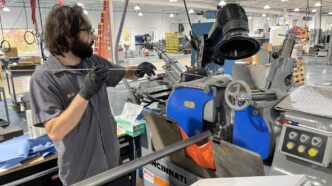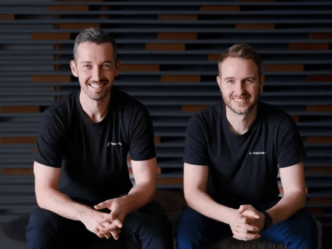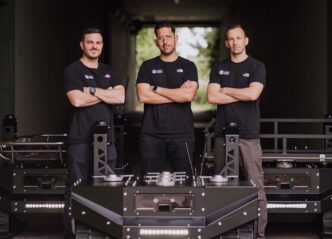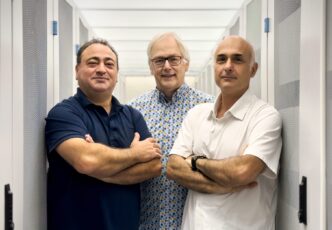Amid global calls for reshoring manufacturing, U.K.-based startup Isembard is stepping up to meet the demand for localized, high-precision industrial production. With geopolitical tension and fragile global supply chains pushing Western nations to bring manufacturing back home, Isembard is building a smarter, more agile factory model to help companies keep pace.
The company, led by CEO Alexander Fitzgerald, just raised a £7 million ($9 million) seed round to expand its operations. Investors include Notion Capital, 201 Ventures, Forward Fund, and several notable angels. The capital will support Isembard’s vision of a distributed network of factories powered by cutting-edge automation and software.
Local Production, Global Ambition
Isembard isn’t trying to build one massive plant. Instead, it’s setting up smaller, automated facilities across Western regions, all connected by its proprietary operating system called MasonOS. The first location, based in London, began operations in January. The startup hasn’t revealed the next sites, but Fitzgerald hinted at expansion across the U.K., Europe, and even into North America and Oceania.
The idea is simple: companies send in digital designs — for example, drone parts — and Isembard quickly produces those components locally. By offering speed, quality, and flexibility, the startup hopes to attract companies in aerospace, defense, and energy that would otherwise outsource to Asia.
“Traditional suppliers just aren’t equipped for modern demand,” said Fitzgerald. “Many factories are outdated, skilled operators have retired, and the systems in place are stuck in the past. We believe reshoring manufacturing requires not just location shifts but also smarter tech.”
That smarter tech is MasonOS. It handles everything from job estimates to machine programming and supply chain coordination. By uniting all factory systems under one platform, Isembard can streamline production, reduce waste, and improve delivery times.
Reshoring Without the Heavy Costs
Unlike U.S. competitor Hadrian, which raised over $200 million to build massive automated factories, Isembard is taking a leaner route. With just 12 employees and a modular model, the company aims to scale without ballooning costs.
Fitzgerald argues that building 100,000-square-foot mega-factories requires too much capital and too much talent in one place. Instead, Isembard runs smaller, efficient units that can be deployed closer to customer needs. That means faster response times, fewer shipping delays, and a lower carbon footprint.
The company has already gained traction in the defense sector and with fast-growing startups, though it hasn’t publicly named its clients. Fitzgerald, a former reservist with strong patriotic values, says the inspiration for Isembard came from both historical and personal roots. The name is a nod to famed British engineer Isambard Kingdom Brunel — with a slight spelling twist to honor intellectual property — and reflects a desire to rebuild Britain’s industrial edge.
But the mission goes beyond patriotism. “We want to help solve industrialization for the West,” said Fitzgerald. “That means making it faster, cleaner, and more reliable to produce critical parts at home — not just for the U.K., but across allied nations.”
As governments and private companies push to reduce dependency on foreign manufacturing, startups like Isembard could play a key role in the next industrial shift. If Fitzgerald’s distributed, software-driven model proves successful, it could help reshape how the West handles precision manufacturing in a post-globalization era.













